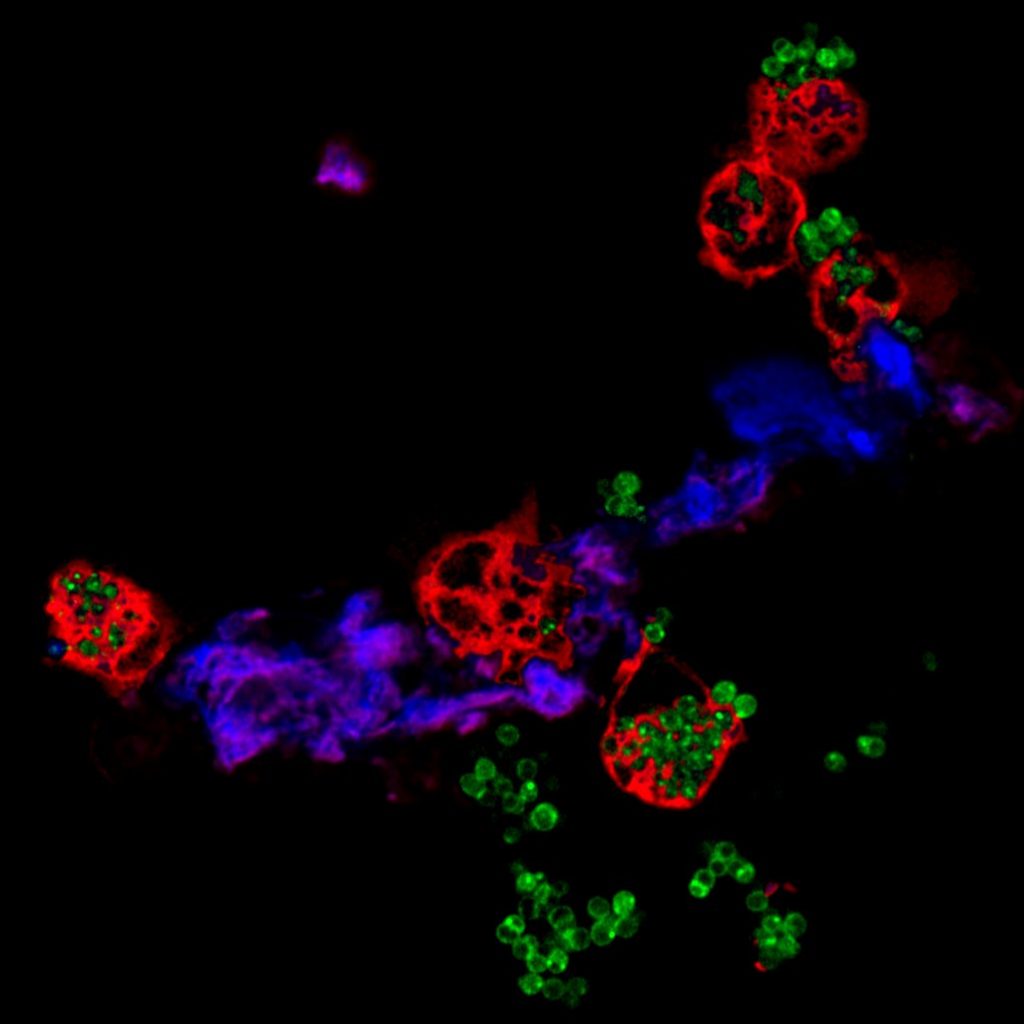$1.86 million NIH Grant Expands Andrew Monteith’s Immunology Research

$1.86 million NIH Grant Expands Andrew Monteith’s Immunology Research
A nearly $1.86 million National Institutes of Health grant will allow Andrew Monteith to further study how metabolic processes affect the ways certain white blood cells fight pathogens.
The Maximizing Investigators’ Research Award (MIRA) is the first to Monteith, an assistant professor since January 2023 in the Department of Microbiology with a joint appointment to the Department of Biochemistry and Cellular and Molecular Biology.
Monteith’s work centers on neutrophils, the backbone of the innate immune response to infection. Although they possess an arsenal of antimicrobial processes to combat invading pathogens, neutrophils also cause inflammation, requiring a delicate balance to limit tissue damage while clearing pathogens.
“The goal of this proposal is to decipher how metabolic processes feed into regulating neutrophil function (immunometabolism) and to understand how comorbidities like diabetes, obesity, and autoimmune disease render neutrophils less effective at combating infection,” said Monteith.
His previous work showed mitochondria within neutrophils dictate whether they release neutrophil extracellular traps (NETs) in response to bacteria. NETosis is the release of a meshwork of the neutrophil’s chromosomal DNA studded with antimicrobial proteins to entrap and kill pathogens, he explained.
Mitochondria are typically seen as the “powerhouse of the cell,” but neutrophils derive nearly all their energy from other metabolic processes. Monteith proposes that mitochondria in neutrophils evolved to detect metabolic changes and dictate how neutrophils should respond during infection.
His research program will use cutting-edge technologies like chimeric immune cell editing (CHIME) to link the pathways that dictate how the neutrophils decide when to cast NETs and how diseases like diabetes and lupus interfere with these signals, causing aberrant inflammation.
The MIRA funding extends through June 2029. “I hope my research program can evolve into other areas of neutrophil immunometabolism, including understanding how diabetes, obesity, and autoimmune diseases impact neutrophil formation in the bone marrow (hematopoiesis), neutrophil persistence within tissues and at the sites of infection, and other inflammatory processes,” said Monteith.
Staff in the College of Arts and Sciences’ Office of Research and Creative Activity helped Monteith with the application budget and other documents before and after his proposal was scored.
Monteith’s interest in immune cells began in middle school, when his mother was diagnosed with multiple sclerosis, an autoimmune disease.
“As I progressed through my undergraduate, graduate, and postdoctoral training, I was fascinated by how each immune cell played a very specific role and how they worked together to perform a functional immune response,” he said. “Better than 99 percent of the time, the immune response does its job, but occasionally something breaks and disease happens. I was most interested in understanding the mechanisms of these negative outcomes and strategies to swing the battle back in favor of the immune response.”

